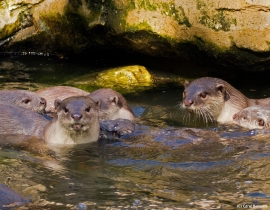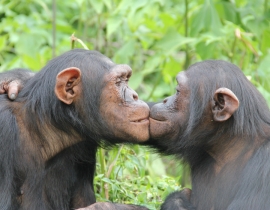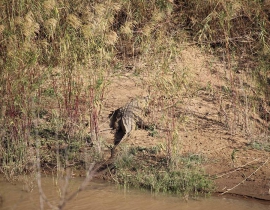Posted February 3, 2015 in All
 Pollution from oil spills is a very real threat to the survival of otters and other river wildlife in Bangladesh. Participants of an otter conservation training workshop saw for themselves the devastating results from a spillage of 350,000 litres of furnace oil, which was the result of two ships colliding. Oil spread from the main channel up river into some of the small creeks – home to Asian small-clawed otters and their food source of crabs and mudskippers – covering the area in a fine film of oil.
Pollution from oil spills is a very real threat to the survival of otters and other river wildlife in Bangladesh. Participants of an otter conservation training workshop saw for themselves the devastating results from a spillage of 350,000 litres of furnace oil, which was the result of two ships colliding. Oil spread from the main channel up river into some of the small creeks – home to Asian small-clawed otters and their food source of crabs and mudskippers – covering the area in a fine film of oil.
Passionate undergraduates, MSc students and lecturers who were attending the Bangladesh training workshop in December, witnessed the long-term effects of the oil spill already showing; plankton levels in the river have already declined which could have knock-on effects through the invertebrates, fish and eventually to predators such as otters. Additionally the otters’ fur will be damaged and they will ingest oil as they try to clean themselves.
Of the 13 species of otter in the world, five species are classed as Endangered; the three African species are Near Threatened; and the Asian small-clawed and smooth-coated otter are classed as Vulnerable. While the Eurasian otter is classed as Near Threatened in some parts of the world, in Asia it is Critically Endangered – there have been no sightings of this species in Bangladesh, Indonesia, Sri Lanka, Cambodia, Vietnam and most of India since the early 1990s, and the status in other parts of Asia are largely unknown.
Colchester Zoo’s Action for the Wild charity donated £4,900 in June 2014 towards the International Otter Survival Fund’s work to protect otters. This helped to fund the five-day conservation workshop in Bangladesh. The workshop has resulted in the formation of a network to coordinate otter sightings and to help local people who work with otters to share their experiences.
By training the next generation of otter researchers, scientists can gather reliable data and develop efficient and practical conservation programmes to help the otters survive.
Article kindly written by ©Sarah Jones Beer



